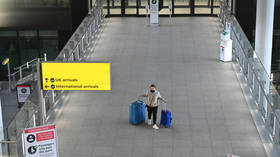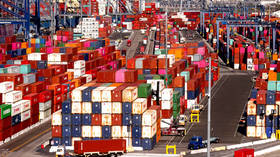Thousands of flights within the US and internationally have reportedly been canceled or delayed on Friday due to the harsh weather conditions and increasing cases of the Omicron variant of coronavirus.
More than 2,600 flights were canceled globally including over 1,200 within the United States, or entering or departing the country, according to data shown by data-tracking website FlightAware. In all, more than 4,700 flights have been grounded over the final day of the year.
The latest delays and cancellations have added to travel disruptions during the holiday week, which is commonly a peak time for air travel.
The rapid spread of the highly transmissible Omicron variant has led to an enormous increase in Covid-19 infections, forcing global air carriers to cancel flights as pilots and crew have to be quarantined.
Moreover, transportation agencies throughout the US are stopping or reducing service.In addition, most airline cabin crew, pilots and support staff, unwilling to deal with unruly passengers, are reluctant to work overtime during the holiday travel season for fear of contracting Covid-19 and despite offers of hefty financial incentives.
For more stories on economy finance visit RT’s business section
Article source: https://www.rt.com/business/544910-mass-flight-cancellations-final-day/?utm_source=rss&utm_medium=rss&utm_campaign=RSS




